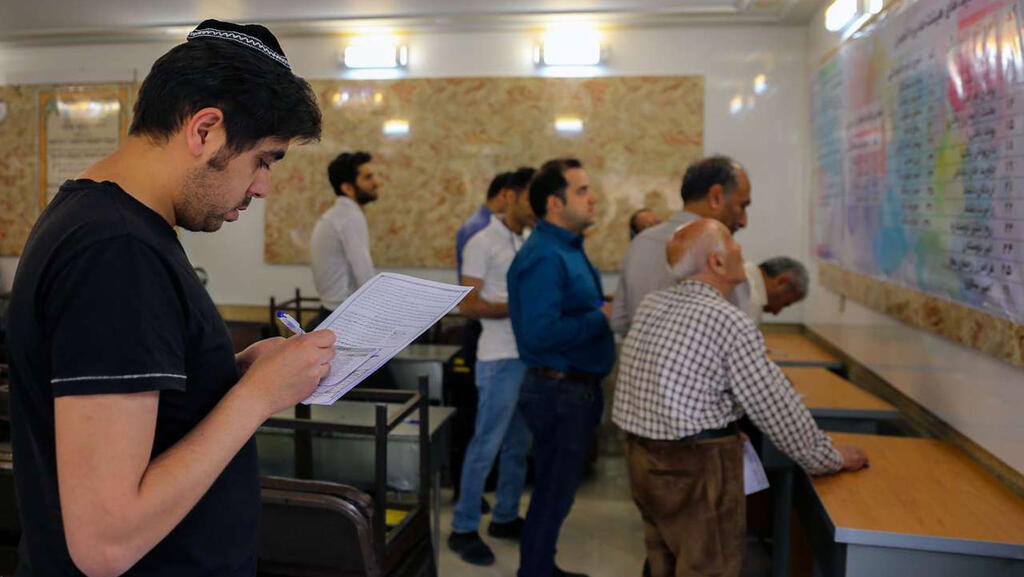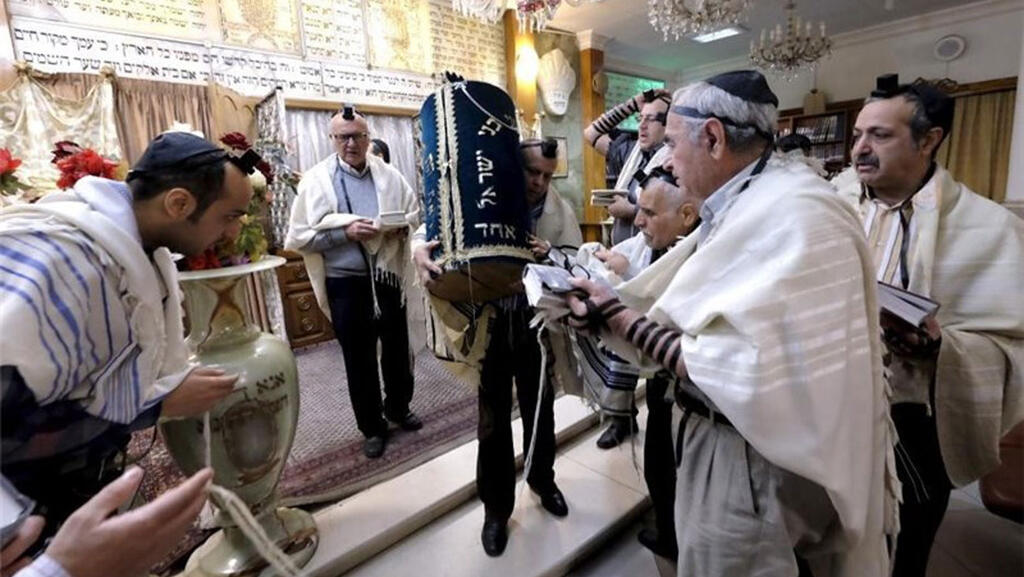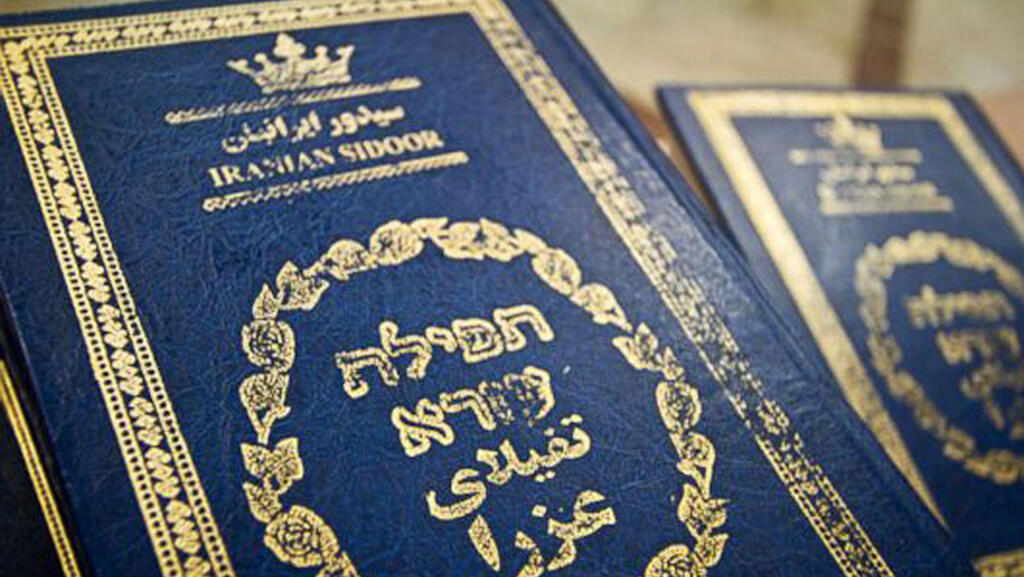This reality poses a great challenge for Iranian Jews in the diaspora who still have ties to family members or Jewish acquaintances back home. Following Iran’s recent humiliation by Israeli intelligence in the latest conflict, the regime is seeking spies among the Iranian Jewish community.
A rabbi who fled Iran as a 14-year-old boy during the 1979 revolution and now lives in the U.S. recalled the fears expressed by his Iran-based Jewish students. “They are afraid because everything is being listened to by someone,” he said, claiming that if they talk about politics, or God forbid, about Israel, they will be arrested immediately.
Now, the tone of his students has shifted. “I just ask them how they’re doing, and many times they just tell us, ‘Please ask everyone to pray for us.’” He remembers the uncertainty that led his family to send him to the U.S. alone. They feared the rise of Islamists would bring about Jewish persecution. Even before the revolution, he recalls antisemitism in schools, teachers singling out Jewish students and telling Muslim students that they could hate the Jews but were not allowed to kill them.
During the violent revolution in Tehran, his fears became reality: “I remember sitting in the synagogue and suddenly a bullet went through the window.” The current uncertainty facing Iran’s Jewish community reminds him of the dread he felt during those bloody years.
Iran still has the largest Jewish community in the Middle East outside of Israel, but its population is only a fraction of what it was before the revolution. Jews who remain must tread carefully. As long as they adhere to the regime’s rules, they can live safely, or at least they could before the conflict.
Esther (a pseudonym) left Iran in 2009 to pursue a life of greater freedom in Israel, leaving her sibling behind. She said about her childhood in a middle-class Jewish enclave where Jews and Muslims coexisted. “Some market owners were antisemitic,” she said, “but they still sold to Jews. We tolerated one another.” She never hid her Jewish identity, even at university, where she was often the only Jew, but emphasized, “We had to make it very clear that we are Jews, not Zionists.”
Her decision to leave wasn’t due to Jewish persecution, but because being Iranian had become unbearable. When asked why she left, she laughed, as if the answer were obvious. “Iran is no place to live,” she said.
“The leaders are not for the people.” When mass protests broke out over the 2009 reelection of President Mahmoud Ahmadinejad, the crackdown on demonstrators grew deadly. “It was a dirty game,” she said. “You live your life, as cautious as you are, and they can still kill you for nothing.” Esther, who already wanted to leave Iran, knew this was no way to live and quickly made her way out.
Now in Israel, she says she used to work in intelligence. Speaking to her beloved sibling is almost impossible. She never told them about her profession to avoid endangering them. But even without that background, talking to Israelis is a huge risk for Iranians. The last time they spoke was four years ago, when her sibling risked their life to notify her of their father’s passing from COVID-19.
These days, she tries to get updates on her sibling’s well-being through third parties, such as relatives in the US. She was relieved to learn her sibling had left Tehran during the recent conflict with Israel. No matter how worried she is, she cannot even imagine reaching out, especially now, with the crackdown on the Jewish community.
Other Jews, those who don’t live in Israel and don’t hold vocations that threaten the regime, may face a lower risk, though it never disappears. Jasmine (a pseudonym) describes her adolescence in Iran as “normal.”
“I would sit around, gossip, have crushes, go to the mall,” she said. Most of her friends were Muslim, and some even defied regime norms by having premarital sex. “Except you have this added layer of fear of the morality police,” she said. “God forbid you run into one by bad luck, and you’re with your boyfriend—they’ll question you.”
“Oh, I’ve been arrested for everything,” Jasmine said. “For being with a guy. For sitting in the park with a group of girlfriends.” She was once even arrested for shouting “Death to Russia” during an anti-Israel protest. “The next thing I know, I’m being chased down, threatened, blindfolded, taken away, told I’ll be hanged and killed.” After 24 hours in detention, the regime found nothing incriminating and let her go.
“People are actually being tortured and killed because they write a blog saying this government is propaganda and bullshit. I don’t do any of that,” she explained. “I’m a nobody.” Jasmine’s mother is now trying to leave Iran as well. Unlike many diaspora Iranians, she says she doesn’t feel the need to be careful when speaking to her mother by phone. “They might monitor us, but I also think we’re so insignificant—do you know how many enemies this regime has? We’re nothing.”
She repeatedly emphasizes that her family is apolitical and quiet, which keeps them safe. In Iran, she says, Jews can live decent lives as long as they don’t threaten the regime or show Zionist inclinations. She acknowledges that recent events have led to mass arrests of many Iranians, including many Jews. “This is great PR for the regime, to go after Jews,” she said.
“Even though they know deep down they didn’t do anything. Why would they? If they wanted to leave, they would have. If they were Zionists, they would have left a long time ago.” While Jasmine doesn’t recall antisemitic incidents during her time in Iran, she does remember hearing rumors that the regime had spies—Muslims disguised as Jews—planted in the community. “Which is why I didn’t go to synagogue much or bother being active in the community.”
William Mehrvarz grew up Muslim in Iran and fled to the US in 2016 after it became public that he had renounced Islam. He converted to Judaism in 2019 in the United States.” Leaving Islam is punishable by death in Iran, and his family had close ties to the regime. He was surrounded by antisemitic propaganda growing up in Tehran.
“Every Friday after prayer, there would be a sermon full of hatred for Israel and the West, and then a flag-burning ceremony,” he said. He also described anti-Jewish rhetoric that preserved familiar stereotypes, such as Jews controlling the banks. “Every problem we have in the country is because of the Jews,” he was told as a boy.
Mehrvarz now lives a Jewish life in the U.S. and is not in contact with his family, which he describes as “abusive”. Most of all, he misses the little brother he helped raise and fears his family is feeding him lies—about William, about Iran, and about Israel. He longs for the day he can return to Tehran and set the record straight.
For Iranian Jews in the diaspora, ties to their homeland are often stitched with silence, longing, and fear. Whether they left decades ago or only recently, their lives are shaped by what they cannot say and whom they can no longer reach. Some still carry the trauma of persecution or exile; others remember an ordinary life lived under extraordinary restrictions. But all share the burden of knowing that being Jewish in Iran is not just an identity—it is a constant negotiation with power.
As tensions between Tehran and Jerusalem rise, negotiation grows ever more dangerous. Above all, there is a shared truth: In the Islamic Republic, you can be Jewish—as long as you’re silent.





